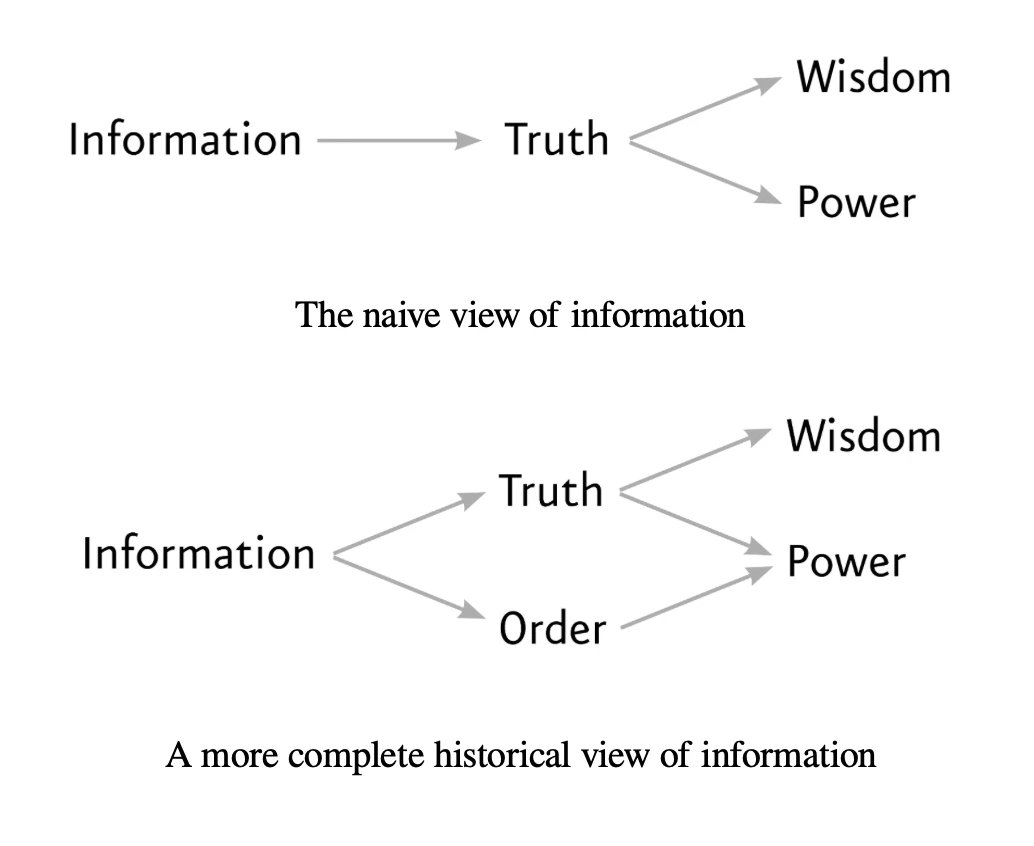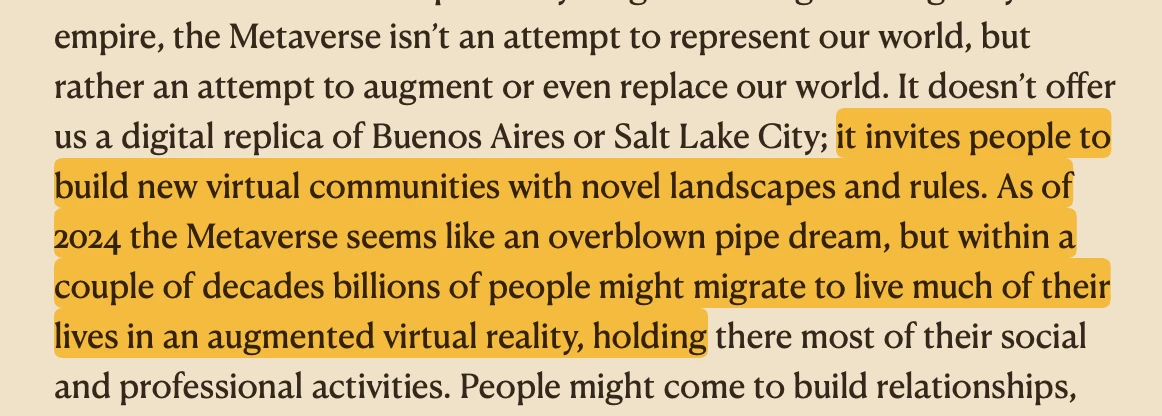
Nexus: A Brief History of Information Networks from the Stone Age to AI by Yuvah Noah Hariri
AI at large
"If we are so wise, why are we so stupid?"
This book is about information. For the last 100,000 years, we Sapiens have accumulated enormous power. But despite allour discoveries, inventions, and conquests, we now find ourselves in an existential crisis. The world is on the verge of ecological collapse. Misinformation abounds. And we are rushing headlong into the age of AI—a new information network that threatens to annihilate us. For all that we have accomplished, why are we so self-destructive?
Yuvah Noah Hariri is one of the most successful historians in the last decade in the art of vulgarizing his unique perspective on the current issues the world is facing by using his deep understanding of the way history tends to write - and rewrite - itself. His 'Sapiens' book is a bestseller for a reason: the historian knows how to tell a good story, hell he theorizes - he's not the first obviously - that the first glue for societies beyond a certain number of members is stories elevated to the myth status. It was only right I jumped on his first official foray into AI as it is the hot topic in 2024, and he does it with his unique perspective that takes into account what we as humans tend to excel or fail at.
What is information? How does it flow in a human groups, collectives, countries, empires or civilizations?
It's important to define intelligence, to delineate what we so call artificial intelligence and how information plays with both these concepts on the grand scale of things. One might think artificial intelligence is the next step to the collective tools we have been using since the cognitive revolution and the ever growing body of knowledge we've acquired, fostered and put lately into binary form, albeit programmed. Nothing can be farther from the truth, artificial intelligence is a different beast on its own merit and disfavour.
"The naïve view information" stipulates the more information we have the better we use it and profit from it.
Only it is far from being true:

On how information entropy helps an autocracy become an authoritarian regime
An authoritarian regime is an autocracy that solved one major problem: a total control of all its subjects at any time. It requires a thorough supervision that trickles down the emperor's precise will down to the most remote village, and by the need of reinforcement, requires the information on how it was applied or faced revolt back to the reigning cabinet. Alas this kind of control is flawed, asynchronous and prone to corruption. Authoritarian regimes that succeeded achieved a major technological feat that precisely gives them an ominous, fast and low errored supervision of a large territory that autocasts would only dream of.
A few questions this book tries to give an answer to
- How humanity used - or misused - information flow to enforce certain political regimes, namely autocratic, or religious dogma
- What is the distinction between truth and reality?
- Are we ready for AI?
Who should read this book?
Anyone interested in the effects of a machine learning system on humans as a collective. It's a must read for all AI enthusiasts, builders, operators, decision and policy makers.
